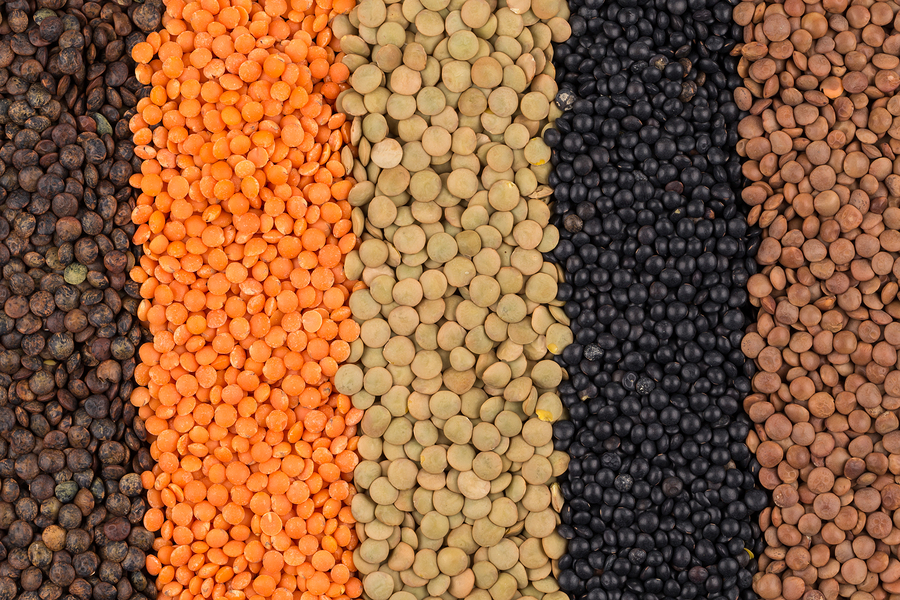Around the world, people of all cultures enjoy the health benefits of lentils, part of a group of proteins known as pulses, which also includes beans, peas, chickpeas. Naturally gluten-free, lentils are rich in dietary fiber, protein, calcium, potassium, zinc, and iron. They help lower cholesterol and are a great addition to the diet especially for people diagnosed with blood glucose disorders.
Prior to the use of pharmaceutical medicines, lentils were used to treat diabetic conditions naturally. When included in a meal, the high fiber content helps prevent blood glucose from rising rapidly after eating. Although calorie dense (230 cal/ one cup serving), lentils are low in fat and more filling that you may think. You definitely won’t be hungry after a lentil meal!
Lentils can be found in the bulk bin aisle or in prepackaged containers at your grocery store. When purchasing in bulk, try to buy organic and make sure there is no moisture in the bin or in the packaging. Look for whole, not cracked lentils. Store them in an airtight container in a cool, dark and dry place. They will keep up to a year. When buying pre-cooked canned or frozen lentils, watch for added salt or other preservatives that may not fit your diet. Unlike other canned veggies, lentils do not lose much of their nutritional potency and are a fine substitute for making them yourself.
If you do have an extra five minutes to spare, lentils are very easy to prepare (no presoaking required as with other dry beans). Wash and strain lentils under cool water prior to cooking. You can boil lentils in water or broth and store in the fridge for later use in casseroles, soups, rice or pasta dishes, salads, spreads/hummus, or soups. Cooked lentils stay fresh in the fridge in a sealed, covered container for about three days.
Gwen, our in-house certified nutritionist, has dozens of lentil recipes she’d love to share with you. Give us a call at 360-570-0401 to schedule an appointment.

